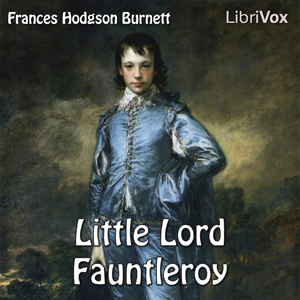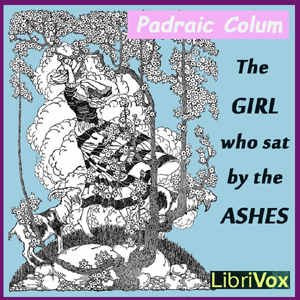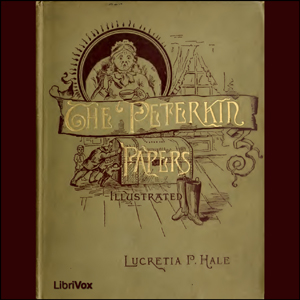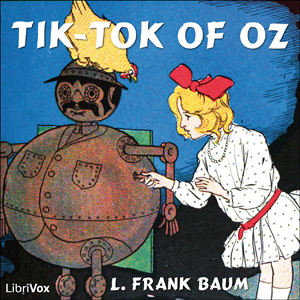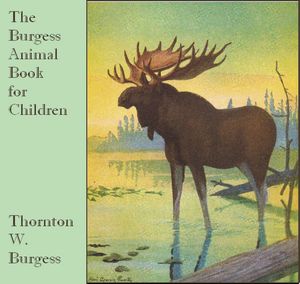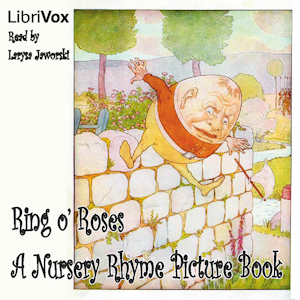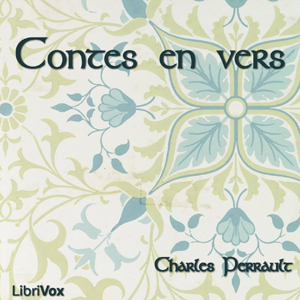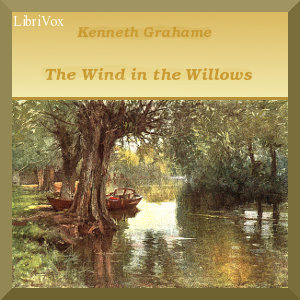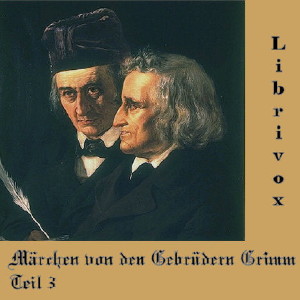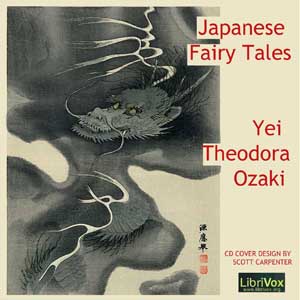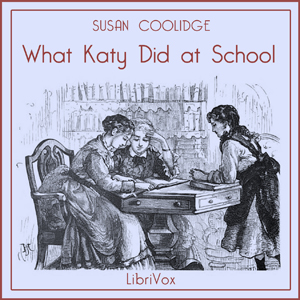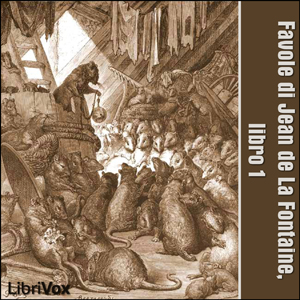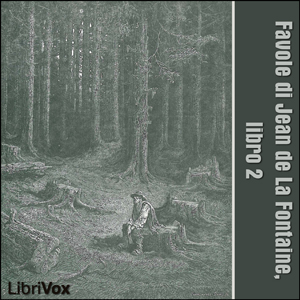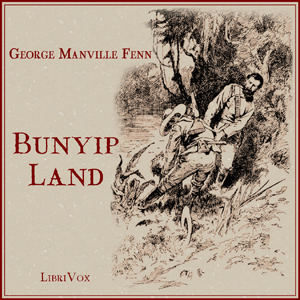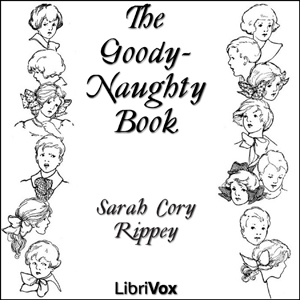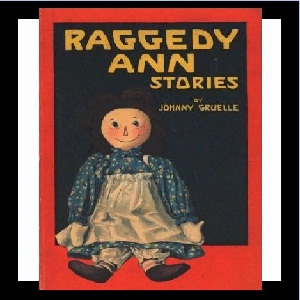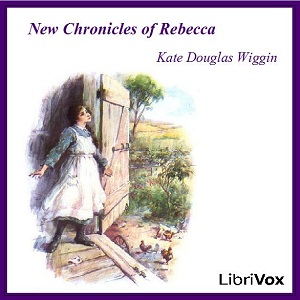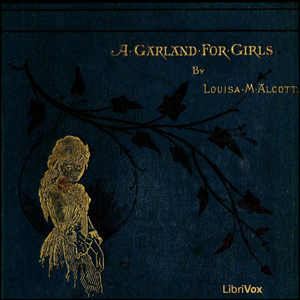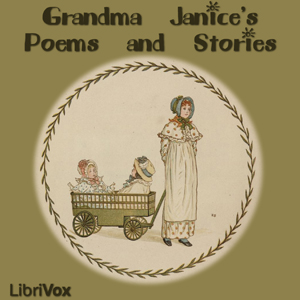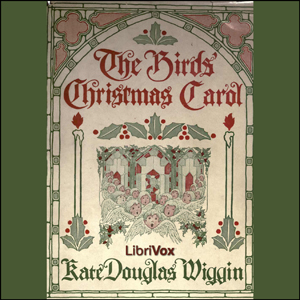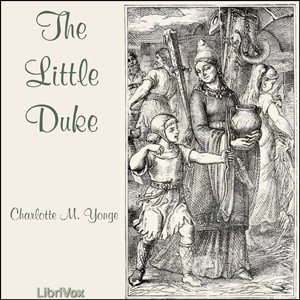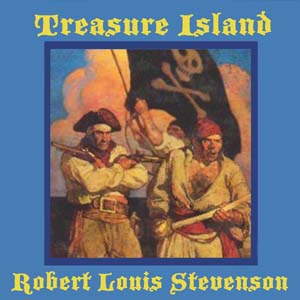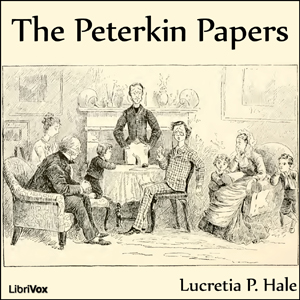"Is There A Santa Claus?" was the headline that appeared over an editorial in the September 21, 1897 edition of the New York Sun. The editorial, which included the response of "Yes, Virginia, There is a Santa Claus," has become an indelible part of popular Christmas lore in the United States. LibriVox brings you eight different versions of this classic.(Summary from wikipedia.org)
8 episodes
Three children, forced to remain at school during the holidays, go in search of adventure. What they find is a magic castle straight out of a fairy tale, complete with an enchanted princess at the center of a maze. Or is it? The castle turns out to be just a country estate, and the princess is only the housekeeper's niece, playing at dressing up. But the magic ring she shows them proves -- to her surprise and horror -- to really be magic. Soon they are caught in an adventure where statues come alive, lost lovers are reunited, and wishes can be granted -- but always for a price. (Summary by Peter Eastman)
12 episodes
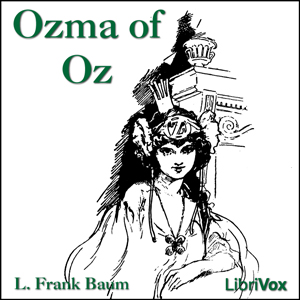
Ozma of Oz was the third title in the Oz series by L. Frank Baum. In this book Dorothy is shipwrecked and lands on the shores of a fairy country that adjoins Oz, the land of Ev. There she meets Tiktok, a wind-up mechanical man; a talking chicken, Billina; and Ozma, the girl ruler of Oz who is leading a quest to rescue the royal family of Ev from their captivity by the Nome King. Dorothy is also reunited with her old friends, the Scarecrow, the Tin Woodman, and the Cowardly Lion. Together the adventurers travel to the Nome King’s underground kingdom and have many exciting adventures before returning to Oz, and for Dorothy, eventual return to her family in the “civilized” world. (Summary by Judy Bieber)Cast:Narrators: Paul Harvey, staticstasy, David Lawrence,
Kara Shallenberg, Miriam Esther Goldman, TriciaG, rymd80, & Mark F. SmithDorothy Gale: Elizabeth KlettBillina the Chicken, Sawhorse: Miriam Esther GoldmanWheelers, Leader of the Wheelers, Big Red Colonel, Hungry Tiger, The Nome King: Christian BrockTikTok the Machine Man, General 1: Mark F. SmithNanda the Maid & Glinda: Raegan PaynePrincess Langdiwere & Queen of Ev: TriciaGScarecrow: David O'ConnellOzma of Oz: staticstasyTin Woodman: Denny SayersCowardly Lion: Padraig O'hIceadhaGeneral 2, Private Omby Amby, Nome Captain: Matt L SpeerCaptain, Chief Steward, Major, Uncle Henry: Barry EadsPrince Evring: Henry FrigonJinjur & Jellia Jamb: Caroline ShapiroGeneral 3: Beverly Scott
Editors: Jennifer Stearns & TriciaG Meta-Coordinator/Cataloging: Jc Guan & TriciaG
22 episodes
A tale written for children in 1885.
It tells of a child of noble birth whose parents have fallen foul of the current royalty. He is placed in hiding and grows up with a bowyer and then apprenticed to an armourer just outside the gates of the City of London.
He becomes accomplished in arms and joins the campaign in France where we see the battles of Crecy and Poitiers through his eyes.
A tale of heroism and 14th century viciousness.
Great fun.(summary by jimmowatt)
23 episodes
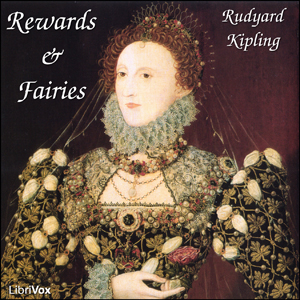
Joseph Rudyard Kipling (December 30, 1865 – January 18, 1936) was an English author and poet, born in India, and best known today for his children’s books, including The Jungle Book, Just So Stories, and Puck of Pook’s Hill; his novel, Kim; his poems, including “Mandalay”, “Gunga Din”, and “If—”; and his many short stories, including “The Man Who Would Be King” and the collections Life’s Handicap, The Day’s Work, and Plain Tales from the Hills. He is regarded as a major “innovator in the art of the short story”; his children’s books are enduring classics of children’s literature; and his best work speaks to a versatile and luminous narrative gift.
Dan and Una met Puck last summer, in Puck of Pook’s Hill. This summer, they meet him again - and several individuals from different periods in history, who, while generally not famous themselves, tell their tales of meeting Queen Elizabeth, Francis Drake, George Washington, and other well-known historical figures. Sadly, Dan and Una forget these encounters as soon as they are over, but the reader can enjoy them for years to come! (Summary by Wikipedia and Catharine Eastman)
12 episodes
Beloved by many generations of children, A Child's Garden of Verses is a beautiful collection of children's poetry. Sometimes thoughtful, sometimes whimsical, but always fun. (Summary by Arctura)
4 episodes
Little Lord Fauntleroy is a sentimental children's novel by American (English-born) author Frances Hodgson Burnett, serialized in St. Nicholas Magazine in 1885. It was a runaway hit for the magazine and was separately published in 1886. The book was a commercial success for its author, and its illustrations by Reginal Birch set fashion trends. Little Lord Fauntleroy also set a precedent in copyright law in 1888 when its author won a lawsuit over the rights to theatrical adaptations of the work. (Summary from Wikipedia)
15 episodes
Alfred J. Church wrote many books looking at classical literature, but is especially well known for his re-telling of classic books in a style so that younger readers may follow the story. The Iliad for Boys and Girls is a retelling of Homer’s Iliad, centred around the events of the siege of Troy during the final year. (Summary by Lizzie Driver)
25 episodes
Little Men (published 1871) is considered the second book of the Little Women trilogy written by Louisa May Alcott. (The book Good Wives (1869) was originally the sequel to the novel Little Women (1868), however those two novels are now usually published as a single volume.) The final book of the trilogy is Jo's Boys (1886).
Little Men follows the life of Jo Bhaer and the students who live and learn at the Plumfield Estate School that she runs with her husband. The mischievous kids, whom she loves and cares for as her own, learn valuable lessons as they become proper gentlemen and ladies. We also get cameo appearances of almost all the characters found in the previous books, almost all of them happy and well. (Summary from Wikipedia)
21 episodes
"Because she used to herd Goats in the high places and the rocky places, she went by the name of Girl-go-with-the-Goats. But that was not the name that she herself called herself. She called herself Maid-alone..."
So begins Padriac Colum's renderation of this classical, well-known tale. He was a master story teller, and in this short book combines vivid characters and a depth of plot with the rough-hewn simplicity the story demands. If you are fond of Cinderella stories, you will enjoy this book. And if you believe you dislike all such, it may yet win you over and change your mind.
16 episodes
The Peterkins were a lovable but comically inept family that possess ingenuity, logic, resourcefulness, and energy--but not common sense. The general formula is that the family tries to solve some problem in an appealingly roundabout way, fails, and is eventually rescued by "the wise old lady from Philadelphia" who always cuts the Gordian knot with some effective but prosaic solution. The charm of the story is not in the plot, but in the telling, with the building up of layers of complication, and the affectionate fun poked at the not-quite-cartoonish characters. The "wise old lady's" solution is usually obvious to the reader, or even the young listener, from the start. (From Wikipedia)
12 episodes
Im Jahre 1880 im Perthes-Verlag, Gotha, erschienenen ersten Heidi-Roman wird erzählt, wie das Waisenmädchen Heidi zu seinem einsiedlerischen Grossvater auf eine Alp oberhalb von Maienfeld (Kanton Graubünden) gebracht wird, wo es in Zukunft leben soll. (Zusammenfassung aus Wikipedia)
14 episodes
"Alice was beginning to get very tired of sitting by her sister on the bank, and of having nothing to do ..." .. and from that moment onward we drift with Alice into another world. When she sees a White Rabbit as it runs through the tall grass (looking worriedly at the watch it takes from its waist-coat pocket), she runs after it and drops into a strange dream. The world is full of chatty animals, from a rather stand-offish hookah-smoking caterpillar to the friendly Cheshire Cat which only sometimes goes to the bother of having a body. And everyone seems to be ordering her about ... or telling her to recite poetry! ... and all those verses that she once knew so well seem strangely distorted.In this book and in "Through the Looking Glass", Lewis Carroll affectionately brought together many of the wonderful stories he told to Alice and her sisters on long summer boating trips. (Summary by Peter Yearsley)
12 episodes
Betsy Bobbin encounters many strange and exciting adventures and people in the land of Oz; a side-plot is Queen Ann of Oogaboo's mission to take over Oz. (Summary by Ryan T.)
26 episodes
The sweetest songs the world has ever heard are the lullabies that have been crooned above its cradles. The music of Beethoven and Mozart, of Mendelssohn and Schumann may perish, but so long as mothers sing their babies to sleep the melody of cradle lullabies will remain. Of all English and American writers the one who sang most often and most exquisitely these cradle songs was Eugene Field, the children's poet. His verses not only have charm as poetry, but a distinct song quality and a naive fancy that is both childlike and appealing. That they were written out of Eugene Field's deep and genuine love of children and out of his sympathetic understanding of their wondering minds is evident from the fact that his lullabies have taken a high and what seems to be a permanent place in the world's classic literature of childhood. (Excerpted by Becky Miller from the Introduction by Edwin Osgood Grover to “Cradle Lullabies” by Eugene Field, published in 1909)
12 episodes
Anne's House of Dreams is book five in the series, and chronicles Anne's early married life, as she and her childhood sweetheart Gilbert Blythe begin to build their life together. (Summary from Wikipedia)
40 episodes
The second of Crompton's series of 39 books about William Brown, our cheeky 11 year-old protagonist. A hero to some, a dastardly villain to others, this book is structured round a year in his life. Starting with William waking up on Christmas morning and ending with him going to sleep the following Christmas Eve, there are the usual round of misadventures, misunderstanding and general mayhem in between. When a boy like William wakes up under a motto that says "A Busy Day Is A Happy Day" alongside a copy of "Things A Boy Can Do", the chaos is just around the corner. Includes the very first William short story - "Rice Mould". Often dismissed as childrens literature, the first few books of William stories were probably aimed more at an adult audience. They resonate with a distinctly English humour, but there are obvious echoes from 'Tom Sawyer' and 'Huckleberry Finn'.
14 episodes
The children of Colonel Beverley, a Cavalier officer killed at the Battle of Naseby are believed to have died in the flames when their house, Arnwood, is burned by Roundhead soldiers. However, they escape and are raised by Joseph Armitage, a gamekeeper in his cottage in the New Forest. The story describes how the children adapt from an aristocratic lifestyle to that of simple cottagers. The children are concealed as the grandchildren of Armitage.Eventually after Armitage's death, Edward Beverley leaves and works as a secretary for the sympathetic Puritan placed in charge of the Royal land in the New Forest. He then joins the army of the future King Charles II and after the Royalist defeat at the Battle of Worcester, he escapes to France and lives in exile until the Restoration.His brother and siblings continue to live in the New Forest and they are reunited on the King's return. (Summary from Wikipedia)
27 episodes
Peter Rabbit goes to school, with Mother Nature as his teacher. In this zoology book for children, Thornton W. Burgess describes the mammals of North America in the form of an entertaining story, including plenty of detail but omitting long scientific names. There is an emphasis on conservation. (Summary by Laurie Anne Walden)
41 episodes
A collection of Classical children's nursery rhymes. Many familiar, a few unfamiliar, all simple and easy for younger children.
3 episodes
The following Tales are meant to be submitted to the young reader as an introduction to the study of Shakespeare, for which purpose his words are used whenever it seemed possible to bring them in; and in whatever has been added to give them the regular form of a connected story, diligent care has been taken to select such words as might least interrupt the effect of the beautiful English tongue in which he wrote: therefore, words introduced into our language since his time have been as far as possible avoided. (from the Author's Preface)
21 episodes
A collection of stories and poems for children by British novelist, journalist, and playwright Lucy Lane Clifford, better known during her lifetime as Mrs W.K. Clifford. She was famous with her mathematician husband for Sunday salons which attracted both scientists and literati. She was born in 1846 and died in 1929.Summary by Val Grimm
14 episodes
J'aurais pu rendre mes Contes plus agréables en y mêlant certaines choses un peu libres dont on a accoutumé de les égayer; mais le désir de plaire ne m'a jamais assez tenté pour violer une loi que je me suis imposée de ne rien écrire qui pût blesser ou la pudeur ou la bienséance. Voici un Madrigal qu'une jeune Demoiselle de beaucoup d'esprit a composé sur ce sujet, et qu'elle a écrit au-dessous du Conte de Peau d'Ane que je lui avais envoyé.
Le Conte de Peau d'Ane est ici raconté
Avec tant de naïveté,
Qu'il ne m'a pas moins divertie,
Que quand auprès du feu ma Nourrice ou ma Mie
Tenaient en le faisant mon esprit enchanté.
On y voit par endroits quelques traits de Satire,
Mais qui sans fiel et sans malignité,
A tous également font du plaisir à lire:
Ce qui me plaît encore dans sa simple douceur,
C'est qu'il divertit et fait rire,
Sans que Mère, Epoux, Confesseur,
Y puissent trouver à redire.
5 episodes
Mary Godolphin was the pseudonym of Lucy Aikin who undertook translating great literature into single-syllable words so that young readers could enjoy plots that were considerably more interesting than, say, the McGuffey readers of the 1880's or the "Dick and Jane" primers of the 1950s (still around today as "decodable readers" in elementary schools).She produced this volume based on Daniel Defoe's most famous work, considered by many to be the first English novel (1719). She also rendered Bunyan's Pilgrim's Progress and Wyss' Swiss Family Robinson, which she translated as well.I’ve recorded this as a complement to my voicing for LibriVox of Robinson Crusoe by Defoe and the companion recording of James Baldwin’s version, Robinson Crusoe Written Anew for Children (actually more for adolescents). So many different versions for a variety of young audiences speaks to the timelessness of Defoe’s original! (Summary by Denny Sayers)
12 episodes
The classic story of how Rat, Mole, and the other river-bankers saved Toad from his excesses. This book has it all: excitement, sentiment, destruction of private property (plenty of that), paganism, and a happy ending. The prose is beautiful and occasionally requires the use of a dictionary - I had to look up “asperities.” Written as a children’s story, The Wind in the Willows is enjoyed by many grown-ups who relish Grahame’s ability to evoke the long summer days of childhood. (Summary by Adrian Praetzellis)
12 episodes
Here are three charming fairy tales with happy endings. They feature an enchanted frog; a princess, her brothers, and a dastardly plot against them; and a magical lamp with a Genius inside. (by Laurie Anne Walden)
3 episodes
Anfang des 19. Jahrhunderts begannen die Brüder Jacob und Wilhelm Grimm, traditionelle, bisher vor allem mündlich weitergegebene Erzählungen zusammenzutragen. Diese Sammlung ist als die Märchen der Gebrüder Grimm weltbekannt geworden und umfaßt so berühmte Geschichten wie Rapunzel, Hänsel und Gretel, Rumpelstilzchen, Rotkäppchen und viele andere. Diese Märchen wurden später stark editiert und 'beschönt'. Die hier vorliegenden Versionen entsprechen aber stärker den originalen, teils drastischen Fassungen.
(Zusammenfassung von Rainer)
38 episodes
Little kids sent to stay the night with their Aunt Jane find themselves sharing an enormous bed. So enormous is it, that when they make a tent of the bedsheets and crawl in, they never make it to the foot of the bed, crawling instead into a dreamworld of caves and pirates and adventures. (summary by ohosostrange)
15 episodes
The Scarecrow of Oz is the ninth book set in the Land of Oz written by L. Frank Baum. Published on July 16, 1915, it was Baum's personal favorite of the Oz books and tells of Cap'n Bill and Trot journeying to Oz and, with the help of the Scarecrow, overthrowing the cruel King Krewl of Jinxland. (Summary from Wikipedia)
Narrated by Cori Samuel,
Ed Good,
Gesine,
Kara Shallenberg,
Kira Belkin,
Kelly Harmon,
K.O. Munley,
Lucy Burgoyne,
Timothy H. VanderWall,
Patrick Beverley,
Riccardo, and
Scott Sherris.
Characters performed by Abigail & Adam Flach,
Robert Flach,
Allyson Hester,
Jamie Wilking,
Kirsten Ferreri,
Chip Joel,
Ezwa,
Claire Goget,
Henry Frigon,
Hugh McGuire,
Stephanie König,
Mark F. Smith,
Kevin McAsh,
Ken Crooker,
Laura Brodrick,
Ada Kerman,
Michael Yard,
Lizzie Driver,
Saul,
Jason Isbell,
Susie G., and
Talia Fishman.
25 episodes
Alice's Adventures in Wonderland is a work of children's literature by the English mathematician and author, the Reverend Charles Lutwidge Dodgson, written under the pseudonym Lewis Carroll. It tells the story of a girl named Alice who falls down a rabbit-hole into a fantasy realm populated by grotesque figures like talking playing cards and anthropomorphic creatures. The Wonderland described in the tale plays with logic in ways that have made the story of lasting popularity with adults as well as children. It is considered to be one of the most characteristic examples of the genre of literary nonsense. (Wikipedia)
10 episodes
First published in 1908, this is a book of "beautiful legends and fairy tales of Japan" that were collected, translated and retold by the author, Yei Theodora Ozaki, who states: "...in telling them I have also found that they were still unknown to the vast majority, and this has encouraged me to write them for the children of the West." In part, the project was the result of a suggestion made by her friend Andrew Lang, another collector of fairy stories, who printed his stories in the many Colored Fairy Books. (Summary by not.a.moose)
23 episodes
A Child's History of England first appeared in serial form, running from January 25, 1851 to December 10, 1853 and was first published in three volume book form in 1852, 1853, and 1854. Dickens dedicated the book to "My own dear children, whom I hope it may help, bye and bye, to read with interest larger and better books on the same subject". The history covered the period between 50 BC and 1689, ending with a chapter summarising events from then until the ascension of Queen Victoria. (Wikipedia)
37 episodes
The continuing story of Katy Carr, recounting the time she spent at boarding school with her sister Clover. (Summary by Karen Savage)
13 episodes
The timeless story of the young orphan girl sent by accident to a brother and sister who had wanted a boy, Anne, with her vivid imagination and sensitive spirit, has enchanted readers for generations. (Summary by Karen Savage)
Other books in this series by this reader:
Anne of Avonlea
Anne of the Island
Anne's House of Dreams
Rainbow Valley
Rilla of Ingleside
38 episodes
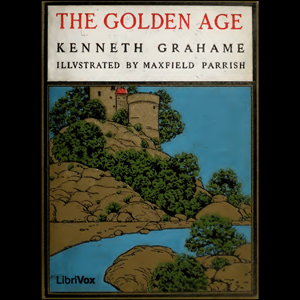
The Golden Age is a collection of reminiscences of childhood, written by Kenneth Grahame and originally published in book form in 1895, in London by The Bodley Head, and in Chicago by Stone & Kimball. (The Prologue and six of the stories had previously appeared in the National Observer, the journal then edited by William Ernest Henley.) Widely praised upon its first appearance—Algernon Charles Swinburne, writing in the Daily Chronicle, called it “one of the few books which are well-nigh too praiseworthy for praise”—the book has come to be regarded as a classic in its genre. Typical of his culture and his era, Grahame casts his reminiscences in imagery and metaphor rooted in the culture of Ancient Greece; to the children whose impressions are recorded in the book, the adults in their lives are “Olympians,” while the chapter titled “The Argonauts” refers to Perseus, Apollo, Psyche, and similar figures of Greek mythology. Grahame’s reminiscences, in The Golden Age and in the later Dream Days (1898), were notable for their conception “of a world where children are locked in perpetual warfare with the adult ‘Olympians’ who have wholly forgotten how it feels to be young”—a theme later explored by J. M. Barrie and other authors. (Summary by Wikipedia)
18 episodes
Nei 12 volumi delle "Favole" (1669 - 1693) Jean de La Fontaine rinnovò la tradizione esopica, rappresentando la commedia umana. Quest'opera dimostrò il suo amore per la vita rurale e attraverso animali simbolici ironizzò sulla vita della società dell'epoca. In the 12 volumes/books of "Favole" (1669 - 1693) Jean de La Fontaine renewed Aesop's tradition, representing the human comedy. This demonstrated his love for country life and by symbolic animals he ironized about his current years society's life. (Summary by Paolo Fedi)
23 episodes

"Old Ralph Rinkelmann made his living by comic sketches, and all but lost it again by tragic poems. So he was just the man to be chosen king of the fairies..." George MacDonald (December 10, 1824 – September 18, 1905) was a Scottish author, poet, and Christian minister. Though no longer well known, his works (particularly his fairy tales and fantasy novels) have inspired admiration in such notables as W. H. Auden, J. R. R. Tolkien, and Madeleine L'Engle. The Shadows is one such fairy tale. The strange Shadows spend their existence casting themselves upon the walls and forming pictures of various sorts: mimicking evil actions of those who have done wrong in the hopes of causing their repentance, playing a comic dumb-show to inspire a playwright and dancing to inspire a musician, nudging a little girl to comfort her grandfather, and playing with a sick little boy as he waits for his mother to return home. The king privately pities the Shadows, for they cannot generally remember their deeds, acquaintances, or loves past a single night. (Summary by Wikipedia and Catharine Eastman)
2 episodes
Nei 12 volumi delle "Favole" (1669 - 1693) Jean de La Fontaine rinnovò la tradizione esopica, rappresentando la commedia umana. Quest'opera dimostrò il suo amore per la vita rurale e attraverso animali simbolici ironizzò sulla vita della società dell'epoca. In the 12 volumes/books of "Favole" (1669 - 1693) Jean de La Fontaine renewed Aesop's tradition, representing the human comedy. This demonstrated his love for country life and by symbolic animals he ironized about his current years society's life. (Summary by Paolo Fedi)
20 episodes
Joe Carstairs is a boy on a farm in Australia. His father is a keen naturalist who, some years before had set off for New Guinea in search of specimens, and never been heard of again. Joe is old enough to mount a search expedition, and takes with him a local doctor and an aboriginal worker on his farm. They find themselves joined by a stowaway, Jimmy, whose father is a squatter (farmer) nearby, together with his dog, Gyp.
This team sets off, arrive in New Guinea, hire some more porters, and travel guided by some sixth sense straight to where Mr. Carstairs has been kept a prisoner, along with another Englishman, whose mind has gone, under the stress of his imprisonment.
There are the usual close shaves and tense moments, but finally they achieve their end, and return home triumphantly:
42 episodes
The Goody-Naughty Book was originally published as two books back to back. Opening the book from one end, the reader experiences "The Goody Side" where the children are polite and thoughtful. However, turning the book over and beginning from the other side, one reads "The Naughty Side" where the children are lazy and irritable. These short, moral stories teach children the proper way to behave and that there are consequences if they don't.
To read along and enjoy the illustrations, please visit the HTML version of this text at Project Gutenberg: The Goody-Naughty Book.
2 episodes
To the millions of children and grown-ups who have loved a Rag Doll, the author dedicated these stories. Now listen as eight voices read to you Raggedy Ann's exciting adventures, as gentle and charming today, as they were when first published in 1918.Find out what is written on her candy heart, what was the gift the fairies brought, and all about Raggedy Ann's new sisters. (summary by Cori)
14 episodes
This book tells further stories from the period of Rebecca's sojourn in Riverboro.
11 episodes
Further Chronicles of Avonlea is a collection of short stories by L.M. Montgomery and is a sequel to Chronicles of Avonlea. Published in 1920, it includes a number of stories relating to the inhabitants of the fictional Canadian village of Avonlea and its region, located on Prince Edward Island. (Summary from Wikipedia)
30 episodes
"These stories were written for my own amusement during a period of enforced seclusion. The flowers which were my solace and pleasure suggested titles for the tales and gave an interest to the work.
If my girls find a little beauty or sunshine in these common blossoms, their old friend will not have made her Garland in vain." - L.M. Alcott, September, 1887
7 episodes
The poems and stories in this collection were selected with the reader’s grandchildren in mind. “The Raggedy Man” and “Little Orphant Annie,” both by James Whitcomb Riley, the Hoosier Poet were favorites of the reader when she was a child on a farm in Indiana. Other favorites were picked up along the way as she read to her own daughter and to her students, while other gems were discovered while looking for poems and stories to include in this collection. It is hoped that this collection will bless the hearts of many children and parents alike as they listen together.
23 episodes

If you don't like Christmas stories, don't read this one!
And if you don't like dogs I don't know just what to advise you to do!
For I warn you perfectly frankly that I am distinctly pro-dog and distinctly pro-Christmas, and would like to bring to this little story whatever whiff of fir-balsam I can cajole from the make-believe forest in my typewriter, and every glitter of tinsel, smudge of toy candle, crackle of wrapping paper, that my particular brand of brain and ink can conjure up on a single keyboard! And very large-sized dogs shall romp through every page! And the mercury shiver perpetually in the vicinity of zero! And every foot of earth be crusty-brown and bare with no white snow at all till the very last moment when you'd just about given up hope! And all the heart of the story is very,—oh very young!
For purposes of propriety and general historical authenticity there are of course parents in the story. And one or two other oldish persons. But they all go away just as early in the narrative as I can manage it.—Are obliged to go away! Yet lest you find in this general combination of circumstances some sinister threat of audacity, let me conventionalize the story at once by opening it at that most conventional of all conventional Christmas-story hours,—the Twilight of Christmas Eve." (excerpt from the text)
3 episodes
Carol Bird was born on Christmas Day. She has spent all of her 11 years putting others above herself, always finding ways to make their lives a little more special. Even when faced with her own illness, the pure goodness of her heart shines through. She vows to find a way to spread Christmas cheer and decides to give a grand Christmas Party for a poor neighbourhood family. (summary by Laura Caldwell and Sarah Jennings)
7 episodes
The Little Duke by Charlotte M. Yonge is historical fiction based on the the life of Richard, Duke of Normandy. He assumes the title of Duke at only 8 years of age, after his father is murdered. The story first appeared in her magazine, The Monthly Packet, as a serial. (summary by Laura Caldwell)
13 episodes
A mysterious map, pirates, and pieces of eight! When young Jim Hawkins finds a map to pirates’ gold he starts on an adventure that takes him from his English village to a desert island with the murderous Black Dog, half-mad Ben Gunn, and (of course) Long John Silver. Arr Jim lad! R.L. Stevenson (1850-1894) was born in Scotland and travelled extensively in California and the south Pacific. (Summary by Adrian Praetzellis)
17 episodes
The Peterkin Papers is a book-length collection of humorous stories by Lucretia Peabody Hale, and is her best-known work. The Peterkins are a lovable but comically inept family with ingenuity, logic, resourcefulness, and energy—but not common sense. Many chapters show the family trying to solve some problem in a roundabout way, failing, and eventually being rescued by "the wise old lady from Philadelphia," who cuts the Gordian knot with an effective but prosaic solution. The charm of the story is not in the plot, but in the telling, building up layers of complication, and the affectionate fun poked at the not-quite-cartoonish characters. The "wise old lady's" solution is usually obvious to the reader, even the young listener, from the start. (summary from Wikipedia)
23 episodes






